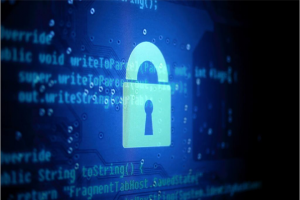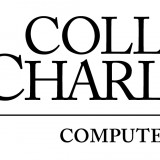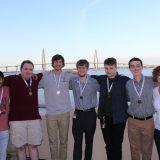By Dr. Xenia Mountrouidou
The project CyberPaths  started from a need and perfect timing of events… or you could call it, a perfect storm! I was in a small teaching school, without sanitized cybersecurity labs, even worse I did not have a way to perform simple computer network experiments for my research and teaching. Receiving my Ph.D. from NC State, a big research school, where we had too many machines to spare, this was a daunting time for me. Furthermore, I had been teaching in liberal arts schools for three years and had finally started understanding what it is all about. In addition, I had been teaching an introductory CS class, that every student in my school had to take as part of their general education requirements. Around this time, I attended a Global Environment for Network Innovations (GENI) workshop and a new world opened up for me. No longer did I have to worry about creating and maintaining my own machines for computer network experimentation. GENI was the solution to all my problems. An academic cloud of computers where you can reserve machines for free all around the country, connect them using high speed internet connections, install anything you want and run any fun experiment you want… even a cyberattack – with proper permissions from the administrators, of course!
started from a need and perfect timing of events… or you could call it, a perfect storm! I was in a small teaching school, without sanitized cybersecurity labs, even worse I did not have a way to perform simple computer network experiments for my research and teaching. Receiving my Ph.D. from NC State, a big research school, where we had too many machines to spare, this was a daunting time for me. Furthermore, I had been teaching in liberal arts schools for three years and had finally started understanding what it is all about. In addition, I had been teaching an introductory CS class, that every student in my school had to take as part of their general education requirements. Around this time, I attended a Global Environment for Network Innovations (GENI) workshop and a new world opened up for me. No longer did I have to worry about creating and maintaining my own machines for computer network experimentation. GENI was the solution to all my problems. An academic cloud of computers where you can reserve machines for free all around the country, connect them using high speed internet connections, install anything you want and run any fun experiment you want… even a cyberattack – with proper permissions from the administrators, of course!
With this perfect storm, the idea came: what if more people like me from liberal arts schools wanted to do research and development on GENI and create a program for their schools? What if they could use the power of general education to attract more diverse talent to the field? Thus, Cyberpaths was born and eventually was funded by the National Science Foundation (NSF). Was it that easy? Well to be honest it was not. It took trial and error; like everything in life, you need to face rejection before success. It also took a considerable amount of work to write the proposal, not considering all the work that I had in place before the writing, to make sure that I can demonstrate that I can do this!!
What is Cyberpaths? We have big ambitious goals to change the way students learn cybersecurity and we are greatly affected by the liberal arts paradigm. Our first goal is to expose students from a variety of majors or undecided students to the field and show them how their major can contribute to it. We will demonstrate this by developing general education modules that fit in different classes such as finance, political science, and humanities. For example, there are political science classes that revolve around international conflict. Well, I can think of several ways that cybersecurity relates to that: cyber war, cyber terrorism, international laws and policies. Thus, we will demonstrate to students from different majors how their expertise can contribute to the highly interdisciplinary field of cybersecurity. If the students are more interested, they can take an intro cybersecurity class to gain additional knowledge. We are implementing this at the College with a First Year Experience (FYSE 112) in Cybersecurity 101 during the Spring 2017 semester. Finally, students can dive deeper in the field by declaring a minor or double major in computer science or computer information systems with a focus in cybersecurity. A focus in cybersecurity means that students will take targeted electives such as computer and network security or even a research/independent study in a related topic.
The second goal of the project is to help other schools to teach cybersecurity experientially without the need for expensive labs and resource overhead. We will achieve this by developing labs on GENI. Instructors can then implement into their teaching of cybersecurity or they can create their own labs after attending our workshops that will give them the required knowledge.
For me, the most exciting part of this project is I get to work with professors from different disciplines. There is no better way to expand my research and teaching than expanding out of the boundaries of my field. There is also no better place to do this than a liberal arts college, where collaboration is encouraged and is feasible. Another exciting part is that my research is feeding my teaching. The GENI labs that we have developed so far are drawn from research publications on detecting Denial of Service (DoS) attacks, mitigating attacks by using highly programmable network techniques, and covert communication in networking. I have several new research assistants that will add great labs to this collection. Also, it is great to work with students that recommend how to teach and what to teach – they keep me in check, as I say. It brings to my mind the following quote:
“The best teachers are usually those who are free, competent and willing to make original researches in the library and the laboratory… The best investigators are usually those who have also the responsibilities of instruction…”
–Daniel Coit Gilman, first President of the Johns Hopkins University



